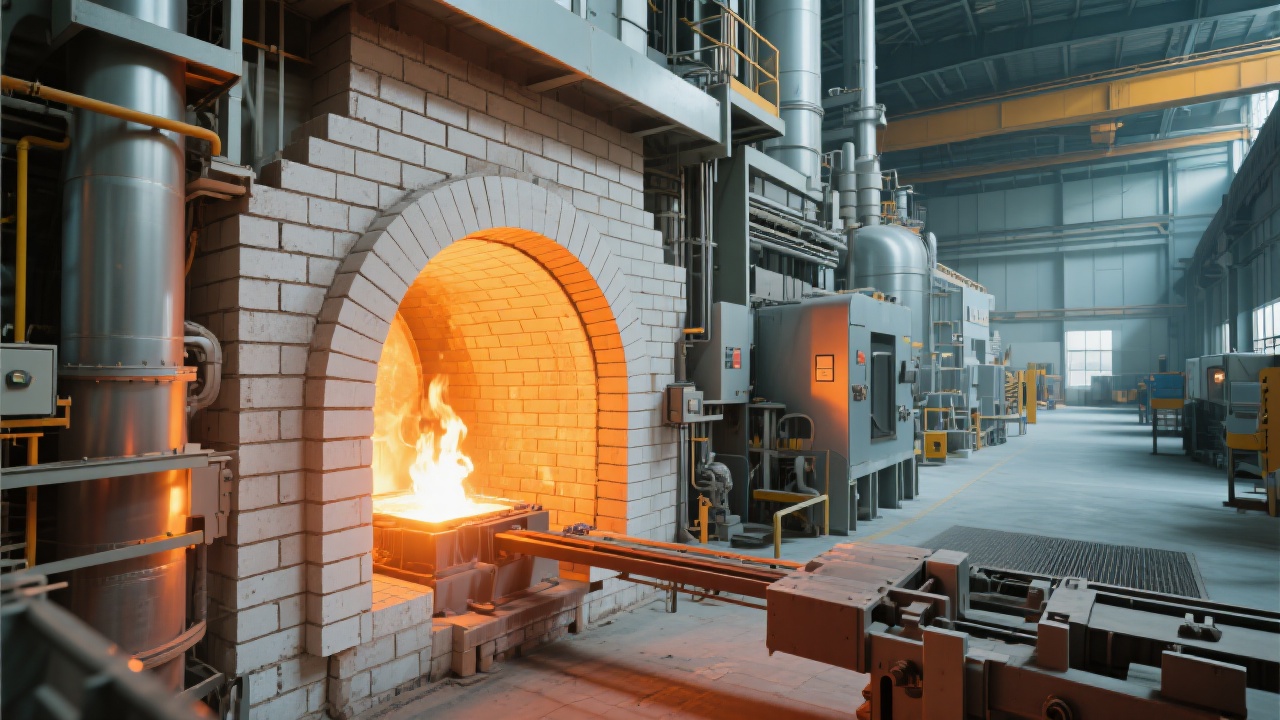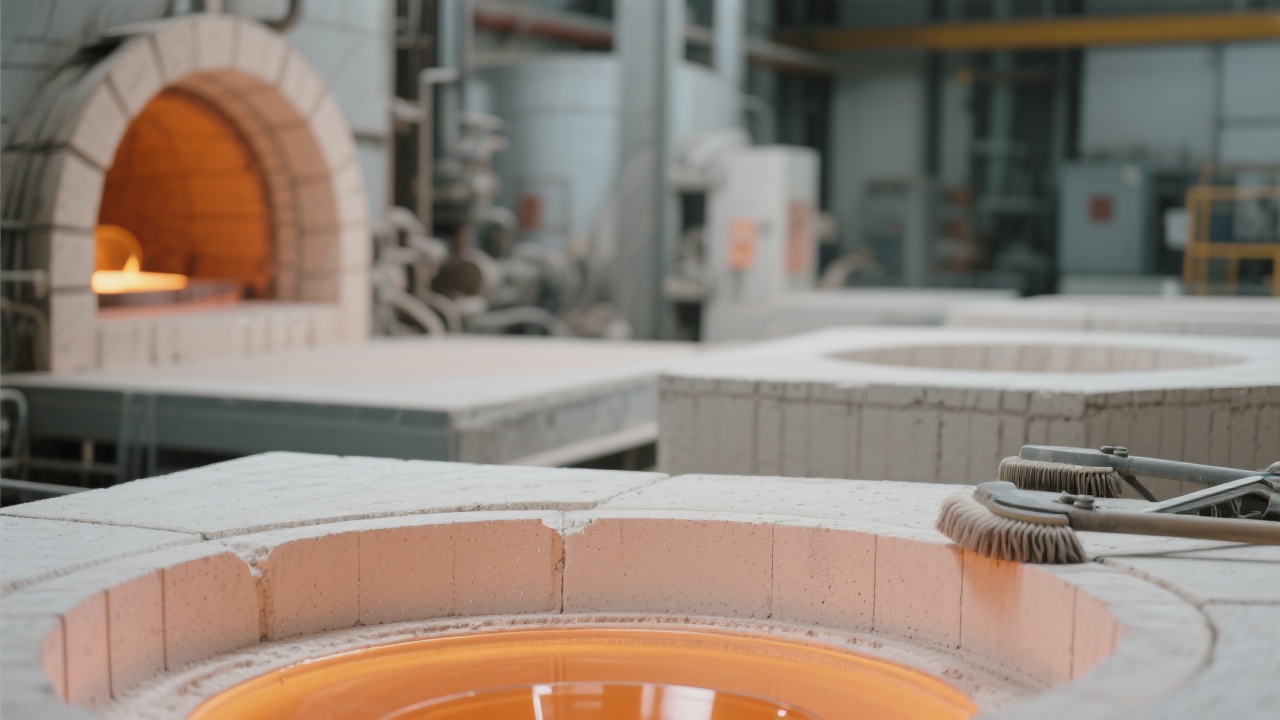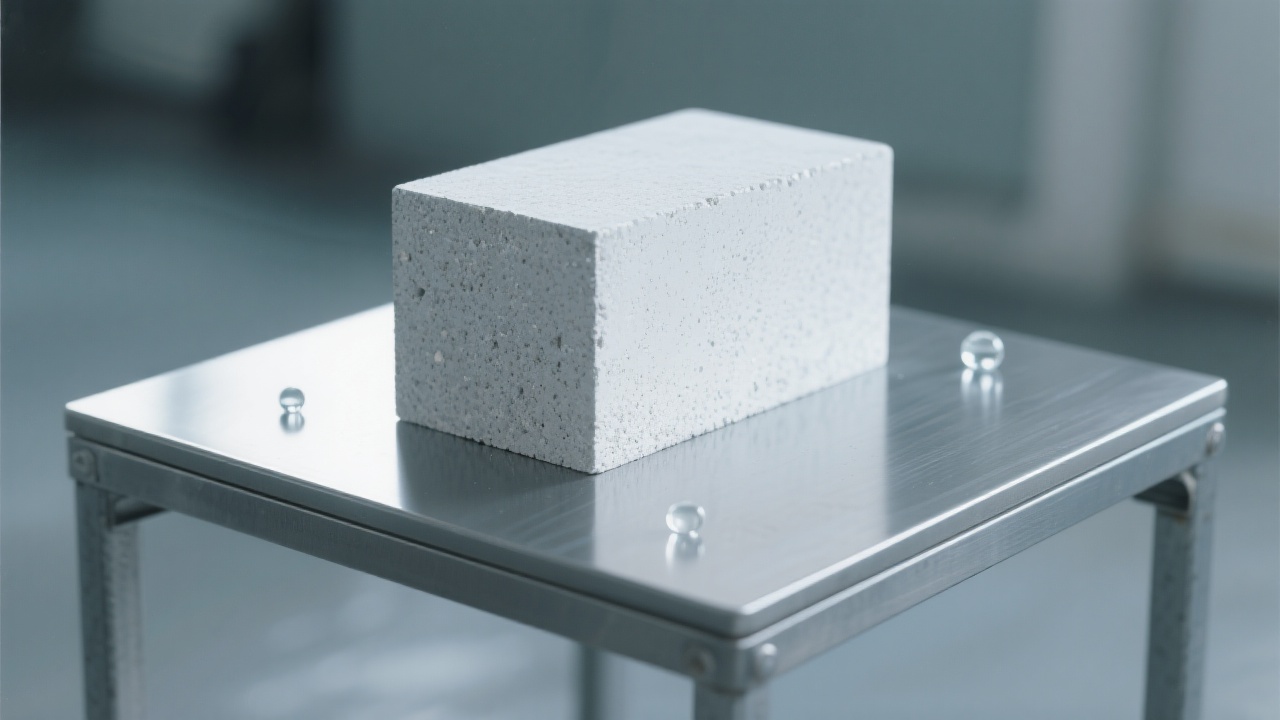
In the glass manufacturing industry, AZS nozzle blocks stand out with their remarkable performance advantages. One of the key features is their high refractoriness. With a melting point as high as 1700°C, they can withstand the extreme temperatures in glass furnaces. This high refractoriness allows the furnace to maintain a stable high - temperature environment, reducing the energy needed to heat up and keep the temperature. For example, in a traditional glass production process, a furnace without AZS nozzle blocks may consume about 500 kWh of electricity per ton of glass produced. However, after using AZS nozzle blocks, the energy consumption can be reduced to around 400 kWh per ton, which is a 20% reduction.

The thermal stability of AZS nozzle blocks is also outstanding. They can maintain their physical and chemical properties under rapid temperature changes. This reduces the thermal stress on the furnace lining and other components, minimizing production fluctuations. In a glass factory in Italy, the production line experienced significant fluctuations before using AZS nozzle blocks, with a product rejection rate of about 8%. After the installation of AZS nozzle blocks, the rejection rate dropped to less than 3% due to the improved thermal stability.
AZS nozzle blocks have excellent anti - corrosion properties. The aggressive molten glass and various chemical substances in the furnace can cause severe corrosion to ordinary refractory materials. But AZS nozzle blocks can resist this corrosion effectively, which greatly extends the service life of the equipment. For instance, ordinary refractory materials may need to be replaced every 1 - 2 years, while AZS nozzle blocks can last for 5 - 7 years.
Moreover, they have extremely low pollution levels. In the glass manufacturing process, any impurity introduced by the refractory material can affect the quality of the glass. AZS nozzle blocks have a very low content of impurities, ensuring the high quality of the glass. A glass product manufacturer in the United States found that after switching to AZS nozzle blocks, the clarity of their glass products increased by 15%, and the light transmittance improved from 90% to 95%.

Let's look at a real - world case. A large - scale glass manufacturing enterprise in China used AZS nozzle blocks in its production line. Before the application, the annual consumption of refractory materials was about 200 tons, and the annual water consumption for equipment cleaning was 50,000 cubic meters. After using AZS nozzle blocks, the annual consumption of refractory materials decreased to 80 tons, and the water consumption for cleaning dropped to 20,000 cubic meters. This not only saved a large amount of resources but also reduced the environmental impact.
| Product Features | AZS Nozzle Blocks | Ordinary Refractory Materials |
|---|---|---|
| Refractoriness | Up to 1700°C | Around 1500°C |
| Anti - corrosion | High | Low |
| Pollution level | Extremely low | Relatively high |
| Service life | 5 - 7 years | 1 - 2 years |

As shown in the table, AZS nozzle blocks have obvious advantages over ordinary refractory materials in terms of refractoriness, anti - corrosion, pollution level, and service life.
In conclusion, AZS nozzle blocks play a crucial role in promoting the sustainable development of the glass manufacturing industry. They help reduce energy consumption, extend equipment life, and improve glass quality. If you are looking for a high - performance and environmentally - friendly solution for your glass production, AZS nozzle blocks are definitely a great choice. Click here to learn more about AZS nozzle blocks and take the first step towards sustainable glass manufacturing!

